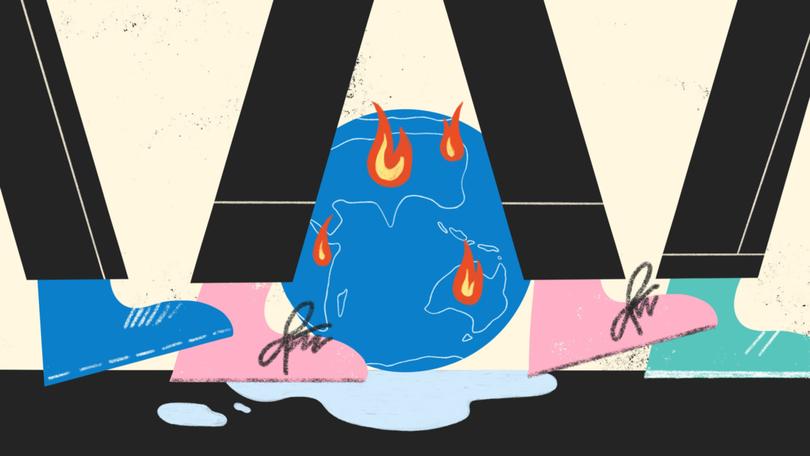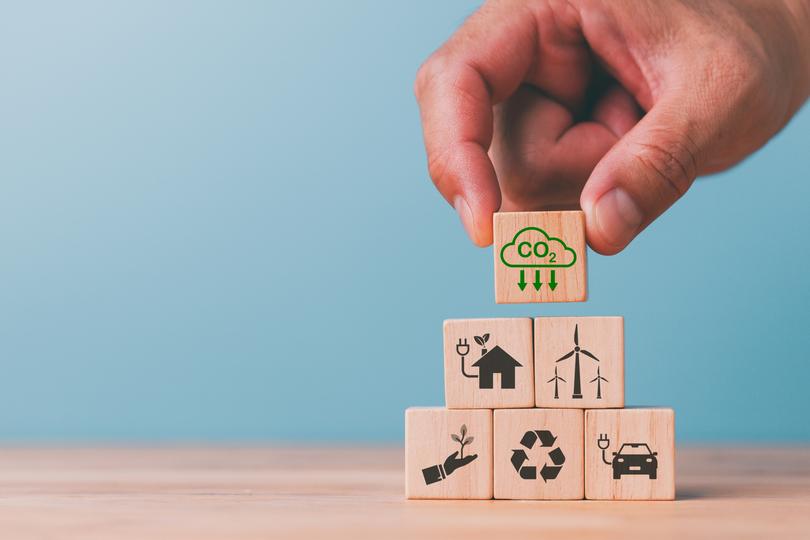ANDREW CARSWELL: Yep, we’re headed for ecological doom. But have you seen the price of eggs lately?
ANDREW CARSWELL: Yep, we’re headed for ecological doom. But have you seen the price of eggs lately?

It could have been a seminal moment if it wasn’t so completely overlooked.
Or perhaps, conveniently buried.
In recent weeks, posted deep in the bowels of the Essential Media website, hidden beneath other far less important graphs that detailed who was hot and who was not in the world of Federal politics, was a fascinating chart that revealed the emerging obstacles facing the Albanese Government on climate change.
Sign up to The Nightly's newsletters.
Get the first look at the digital newspaper, curated daily stories and breaking headlines delivered to your inbox.
By continuing you agree to our Terms and Privacy Policy.It was based on a simple polling question: is Australia doing enough, not enough or too much to address climate change?
For the first time since the question’s inception in the monthly Essential Poll in 2016, more Australians suggested the nation was “doing enough”, than those that suggested “not enough”.
The numbers in and of themselves are not necessarily spectacular. Of those polled, 36 per cent said we were doing enough to address climate change, 35 per cent said we weren’t doing enough, and 18 per cent said we were doing too much.
But it’s the rapid decline of those claiming Australia wasn’t doing enough that showcases the dramatic shift in our attitudes towards how we are addressing climate change. At the beginning of the decade, just four years ago, that figure stood at 62 per cent.
It’s almost halved.
This of course has nothing to do with over-arching attitudes towards climate change. The vast majority of Australians clearly believe it is a moral imperative to tackle this issue, given our emissions-intensive economy, our reliance on fossil fuels, and our geographical susceptibility to adverse weather conditions.
The question is more about how we achieve it, and what policy instruments we are deploying to reach our targets, without undermining our economy and social fabric.
Because this plummet in the numbers of the “not doing enough” camp is not some kind of stamp of approval to Australian governments that they are finally getting the policy settings right, that they are finally responding to the mood for urgent change.
It is a collective tug on the reins. Whoa, horsey!
There are two likely reasons why we have this remarkable trend towards “doing enough”.
Firstly, priorities matter.
When Australians are feeling the pinch, their often stoic defence of all things climate action suddenly shifts down the order of priorities. Yes, battling an existential climate emergency is important, but geez, have you been to Woolworths lately?
Current grocery prices trump impending global catastrophe, any day of the week.
That much is apparent in the colourful graph. It is a noticeable shift that can also be seen spiking during those wild early days of the COVID pandemic when the distant threat of rising sea levels was suddenly put in a more urgent perspective: one could die from an uncovered sneeze in one’s general direction.
I see your climate emergency, and I raise you a humanitarian emergency.

Clearly, when all is well with the world, we have the time and space to care for the world and its future. When it all turns to s..t, suddenly we don’t give as much of a s..t.
Apparently.
But using this simplistic argument in isolation may unnecessarily diminish the smarts of, and the belief in the greater good often exhibited by, ordinary Australians. Plus it ignores the obvious: the overall trend is moving in one direction, even when you strip out the peaks.
Clearly, there is a growing belief among Australians that the increasingly rash decisions governments are taking to address legitimate climate change, and the warp speed required to achieve those noble ambitions, are becoming a little too uncomfortable, and unnecessary.
The destination is agreed upon, lock it in. But the methods to get there are causing wider consternation and scepticism than the Albanese Government is willing to concede.
There is a growing frustration that while other nations are taking stock — walking back excessive renewable energy targets, broadening their base of energy solutions, taking their foot off the accelerator to allow their low-growth economies to avoid recessions, using more carrot and less stick — Australia’s march to a net zero sum game is quickening, ignoring the groans from the masses.
Australians love solar. We have the highest uptake of roof-top solar in the world.
But they distrust this preachy dogma from their stubborn energy ministers that solar and wind are the only answers to our energy and emissions conundrum; that merely slapping up thousands of solar farms on productive agricultural land, crisscrossing the country with transmission lines, and destroying marine livelihoods and tourism with a proliferation of offshore wind turbines is the smartest way forward.
The graph is a warning to governments, coming on the eve of the Federal Government’s decision on a 2035 target: be smarter, look wider, take people with you. Put all the energy solutions on the table, be technology agnostic in your approach in order to shift the dial, re-embrace gas, and don’t leave all the heavy lifting to wind and solar solutions that the public are quickly seeing as only part of the answer.
There is an economic and social imperative to have such a broad approach; employing every weapon in the arsenal. But also a political one.
If the current rise of “doing enough” continues to grow momentum, then pursuing excessive climate targets without an acknowledgement or proper consideration of the economic and social costs will become political suicide.
